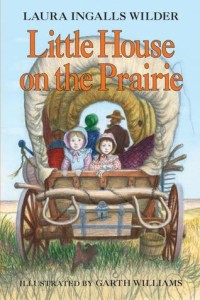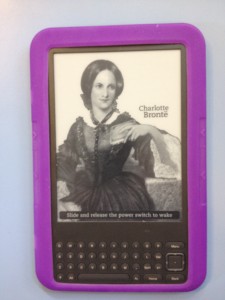Little Libertarians on the prairie

Christine Woodside argues that Laura Ingalls Wilder’s daughter, journalist Rose Wilder Lane, edited her mother’s reminiscences into books that project a Libertarian point of view:
A close examination of the Wilder family papers suggests that Wilder’s daughter did far more than transcribe her mother’s pioneer tales: She shaped them and turned them from recollections into American fables, changing details where necessary to suit her version of the story. And if those fables sound like a perfect expression of Libertarian ideas—maximum personal freedom and limited need for the government—that’s no accident. Lane, and to an extent her mother, were affronted by taxes, the New Deal, and what they saw as Americans’ growing reliance on Washington. Eventually, as Lane became increasingly antigovernment, she would pursue her politics more openly, writing a strident political treatise and playing an important if little-known role inspiring the movement that eventually coalesced into the Libertarian Party.
Today, as Libertarian values move back into the mainstream of American politics, few citizens think to link them to a series of beloved childhood books. But the Little House books have done more than connect generations of Americans to the nation’s pioneer history: They have promoted a particular version of that history. The enduring appeal of the books tells us something about how deep the romance with self-reliance runs through American history, and the gaps between the Little House narrative and Wilder’s real life say a lot about the government help and interdependence that we sometimes find more convenient to leave out of that tale.
And the continued popularity of the Little House books makes it hard to argue against the influence those books have had in shaping our vision of American history and the American spirit.
Mysterious Press to Publish Early Larsson Story
Mysterious Press, an imprint of Grove Atlantic, announced it will publish a story by a 17-year-old Stieg Larsson never previously available in English. The piece is part of a larger anthology of Sweden’s greatest crime writers, A Darker Shade of Sweden, and is slated for publication in February 2014.
10 Books Every Woman Should Read
From fearless female protagonists realising their dreams in the face of adversity, to witty social commentaries on the female condition as well as two very different feminist manifestos written fifty years apart – here are 10 of the most influential and unputdownable books that celebrate, in their own way, what it is to be a woman.
This list includes some books I expected to find (e.g., The Feminine Mystique by Betty Friedan, The Bell Jar by Sylvia Plath) and some I didn’t (e.g., How to Be a Woman by Caitlin Moran, The Complete Persepolis by Marjane Satrapi).
Books to Have and to Hold
 And the debate surrounding print books vs. ebooks rages on. Here’s Verlyn Klinkenborg’s opinion:
And the debate surrounding print books vs. ebooks rages on. Here’s Verlyn Klinkenborg’s opinion:
When I read a physical book, I remember the text and the book — its shape, jacket, heft and typography. When I read an e-book, I remember the text alone. The bookness of the book simply disappears, or rather it never really existed. Amazon reminds me that I’ve already bought the e-book I’m about to order. In bookstores, I find myself discovering, as if for the first time, books I’ve already read on my iPad.
All of this makes me think differently about the books in my physical library. They used to be simply there, arranged on the shelves, a gathering of books I’d already read. But now, when I look up from my e-reading, I realize that the physical books are serving a new purpose — as constant reminders of what I’ve read. They say, “We’re still here,” or “Remember us?” These are the very things that e-books cannot say, hidden under layers of software, tucked away in the cloud, utterly absent when the iPad goes dark.
Digital reading: not so discreet after all…
I like reading on both my Kindle and my iPad; I also like reading print books. I don’t see what all the seemingly endless discussion is all about. Both print and ebooks are good; neither one is inherently bad.
On the other hand, The Guardian may have a point here:
At the end of 2012 the Electronic Frontier Foundation published the latest edition of its E-Reader Privacy Chart, and the results aren’t great. Almost every service tracks searches for books, meaning not just what you read, but what you’re interested in, is stored. Every book you purchase is linked to your account. . . .
